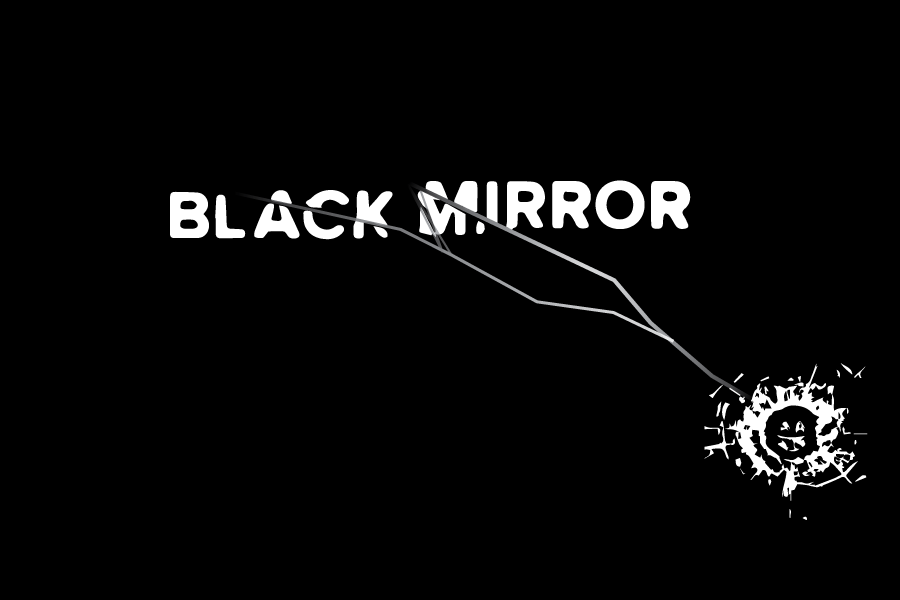
Wildly popular Netflix drama speaks to unease of current generation
Black Mirror doesn’t hesitate to be full-on effed up from the get-go: the pilot episode is about the kidnapping of a British princess who can only be saved if the British Prime Minister agrees to perform sexual intercourse with a pig and broadcast it live internationally. It’s bizarre, yes, but in a way, it captures the insanity of the modern age.
Black Mirror, a British break-out hit available on Netflix, isn’t just a TV show; it’s smart, sharp commentary on 21st-century technology development and consumption. Copying the stand-alone dramatic style of The Twilight Zone, each episode of Black Mirror has a different plot that cuts deep into our psyche which has become so closely braided with the mysterious nature of contemporary technology. The Twilight Zone and Black Mirror overlap in not only framework, but in concept as well. The Twilight Zone aired in the midst of the Cold War and featured the confusion and dismay of the time as many episodes’ plots centered around the end of the world, bomb shelters and neighbor against neighbor.
It is no wonder why Black Mirror has taken so much inspiration from the cult classic — the show deals with a similar anxiety but in a modern context. In each episode, the show explores psychological and societal problems that stem from social media and technology. The episode “White Christmas” features chips planted in people’s heads that copy an individual’s consciousness to then be placed into a device that controls a Smart House based on that specific individual’s likes, dislikes and daily patterns. The program knows just how an individual likes their toast, and seems to know people better than they know themselves — an eerie thought in an era of smartphones and self-driving cars.
Another subtly haunting example occurs at the end of the first episode. As the Prime Minister sits in a bathroom covered in sweat and vomit (after his sexual encounter with the pig), his cell phone continues to ring as the frame slowly turns black — even in our most vulnerable moments, an omnipotent social media presence still reigns supreme. There is no personal space. Silence fails to exist.
Black Mirror is not the only show currently exploring the repercussions of technology. Mr. Robot portrays a social outcast, Elliot, who gets involved in a revolutionary computer hacking group named fsociety that plans to take down a major tech corporation. Both shows express the subconscious fear and anxiety surrounding society’s increasing dependence on technology. Moreover, both shows tap into this unease and translate it to fit a larger, more accessible platform. Black Mirror has plots that are absolutely insane and downright creepy, but are relatable at the same time. That’s the truly scary part.
As for Mr. Robot, it portrays the subtle isolation embodied in technology — genuine social interactions are gone, as demonstrated by the socially isolated Elliot. Nonetheless, underlying the show is an anger concerning the control technology possesses and ultimately leads to a social revolution in the show. Maybe something similar is on the horizon in reality.
The haunting party of these sci-fi shows is that while the ideas may seem far-fetched, they really are not once reflected on. With the current trends and progression of contemporary technology, the concepts of both shows are somewhat feasible. There lies the dualism of technology: while it provides us with the gift of limitless information, it also poses the potential for horrifying results.
Entertainment is entering a new stage of content, one that centers around the anxiety of our current age. Like in the The Twilight Zone, having content that was able to express the population’s emotions and anxiety served to motivate discussion, to prevent a bottling-up of emotions. These shows are well written, well-produced and, most importantly, make their large audiences think; that’s the beauty of entertainment.
Written by: Caroline Rutten — arts@theaggie.org



